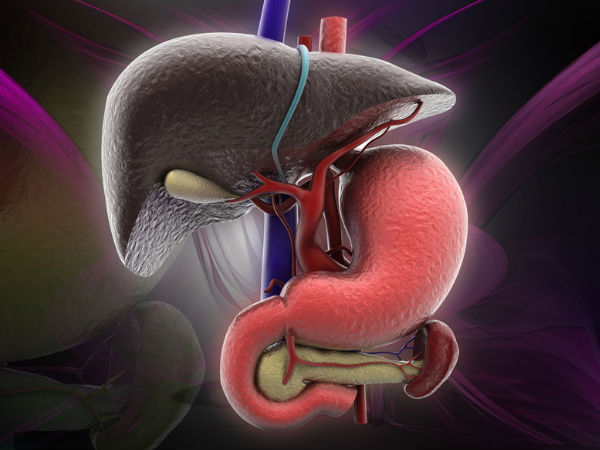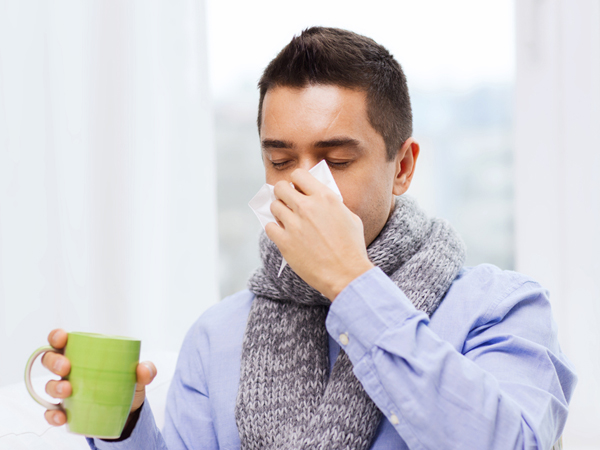Just In
- 5 min ago

- 3 hrs ago

- 4 hrs ago

- 9 hrs ago

Don't Miss
- Finance
 Results, Dividend, Fundraise On April24: Buy Top Bank Stock Amid Rich Valuation, TP Rs 1400: Nomura
Results, Dividend, Fundraise On April24: Buy Top Bank Stock Amid Rich Valuation, TP Rs 1400: Nomura - Sports
 Who Won Yesterday's IPL Match 33? PBKS vs MI, IPL 2024 on April 17: Mumbai Indians Escape Last-Ditched Fight by Punjab Kings To Win
Who Won Yesterday's IPL Match 33? PBKS vs MI, IPL 2024 on April 17: Mumbai Indians Escape Last-Ditched Fight by Punjab Kings To Win - Movies
 Do Aur Do Pyaar OTT Release Date & Platform: When & Where To Watch Vidya Balan’s Film After Theatrical Run?
Do Aur Do Pyaar OTT Release Date & Platform: When & Where To Watch Vidya Balan’s Film After Theatrical Run? - News
 BRS Chief K Chandrasekhar Rao Slams BJP, Says K Kavitha's Arrest Is Vendetta Politics
BRS Chief K Chandrasekhar Rao Slams BJP, Says K Kavitha's Arrest Is Vendetta Politics - Automobiles
 Aprilia RS 457 Accessories: A Detailed Look At The Prices
Aprilia RS 457 Accessories: A Detailed Look At The Prices - Education
 Karnataka SSLC Result 2024 Soon, Know How to Check Through Website, SMS and Digilocker
Karnataka SSLC Result 2024 Soon, Know How to Check Through Website, SMS and Digilocker - Technology
 Nothing Ear, Ear a With ANC, Up to 42.5 Hours of Battery Launched; Check Price and Availability
Nothing Ear, Ear a With ANC, Up to 42.5 Hours of Battery Launched; Check Price and Availability - Travel
Telangana's Waterfall: A Serene Escape Into Nature's Marvels
Cold Weather, Fewer Sun Hours Increase Alcoholic Cirrhosis
People in colder and less sunny regions of the world have higher rates of alcoholic cirrhosis, a disease caused by excessive drinking which results in irreversible scarring of the liver, scientists ha
People in colder and less sunny regions of the world have higher rates of alcoholic cirrhosis, a disease caused by excessive drinking which results in irreversible scarring of the liver, scientists have found.
A new data from more than 190 countries presented on Saturday at the International Liver Congress 2017 in Amsterdam, the Netherlands, suggests that every increase in temperature of one degree Celsius was linked with a decrease in the alcohol-attributable fraction (AAF) of cirrhosis of 0.3 per cent.

Heavy alcohol intake causes a perception of warmth, while fewer sunlight hours have been linked to depression, which, in turn, may lead to alcohol abuse. As a result, the researchers hypothesised that colder countries would have higher rates of alcohol consumption and therefore an increased burden of alcoholic cirrhosis.
"Our research reveals that a country's climate and geographical location have a startling influence on the burden of liver cirrhosis," said lead author Dr Neil D. Shah, and senior author Dr Ramon Bataller from the University of North Carolina.
"As average temperatures and yearly hours of sunshine decrease and latitude increases, rates of alcohol-attributable cirrhosis increase. This suggests that drinking alcohol excessively to combat the cold and dark could put people at increased risk of suffering from alcoholic cirrhosis."

In the univariate analysis conducted by researchers, there was an inverse association between mean average temperature, mean annual sunshine hours and a positive association with absolute latitude with AAF.
In the multivariate analysis, average temperature and sunshine hours remained independently associated with the burden of alcohol-attributable liver cirrhosis or AAF after adjusting for the percentage of binge drinkers among active drinkers and alcohol consumption.
With Inputs From IANS
-
 healthHow To Keep Feet Hot During Winters: 12 Tips That Will Tackle Cold Feet Issues And Make Your Feet Thank You
healthHow To Keep Feet Hot During Winters: 12 Tips That Will Tackle Cold Feet Issues And Make Your Feet Thank You -
 insyncWhat Is World's Coldest City? It Is In Russia, Records -71° C, Carrying A Winter Survival Kit Won't Be Enough!
insyncWhat Is World's Coldest City? It Is In Russia, Records -71° C, Carrying A Winter Survival Kit Won't Be Enough! -
 healthHow To Keep Your Hands Warm In Winter?
healthHow To Keep Your Hands Warm In Winter? -
 healthCommon Cold: Causes, Symptoms, Risks, Effective Remedies And More
healthCommon Cold: Causes, Symptoms, Risks, Effective Remedies And More -
 wellness5 Foods To Relieve Common Cold Symptoms Like Sneezing And Runny Nose
wellness5 Foods To Relieve Common Cold Symptoms Like Sneezing And Runny Nose -
 healthUnbelievable! Malaysia's Plan To Eradicate Dengue Fever With Mosquitoes
healthUnbelievable! Malaysia's Plan To Eradicate Dengue Fever With Mosquitoes -
 wellnessTry These 5 Hot Beverages For Relief From Common Cold
wellnessTry These 5 Hot Beverages For Relief From Common Cold -
 healthThe Secret Link between Cold Weather and Flu Unveiled!
healthThe Secret Link between Cold Weather and Flu Unveiled! -
 healthWhat Does The Sound Of Your Cough Say About Your Lung Health?
healthWhat Does The Sound Of Your Cough Say About Your Lung Health? -
 health3 Common Foods You Shouldn’t Keep In Fridge After Heating
health3 Common Foods You Shouldn’t Keep In Fridge After Heating -
 healthMyths vs Facts: Can Whisky Really Cure A Cold? Let's Find Out
healthMyths vs Facts: Can Whisky Really Cure A Cold? Let's Find Out -
 healthHow to Prevent Cough and Cold
healthHow to Prevent Cough and Cold


 Click it and Unblock the Notifications
Click it and Unblock the Notifications





